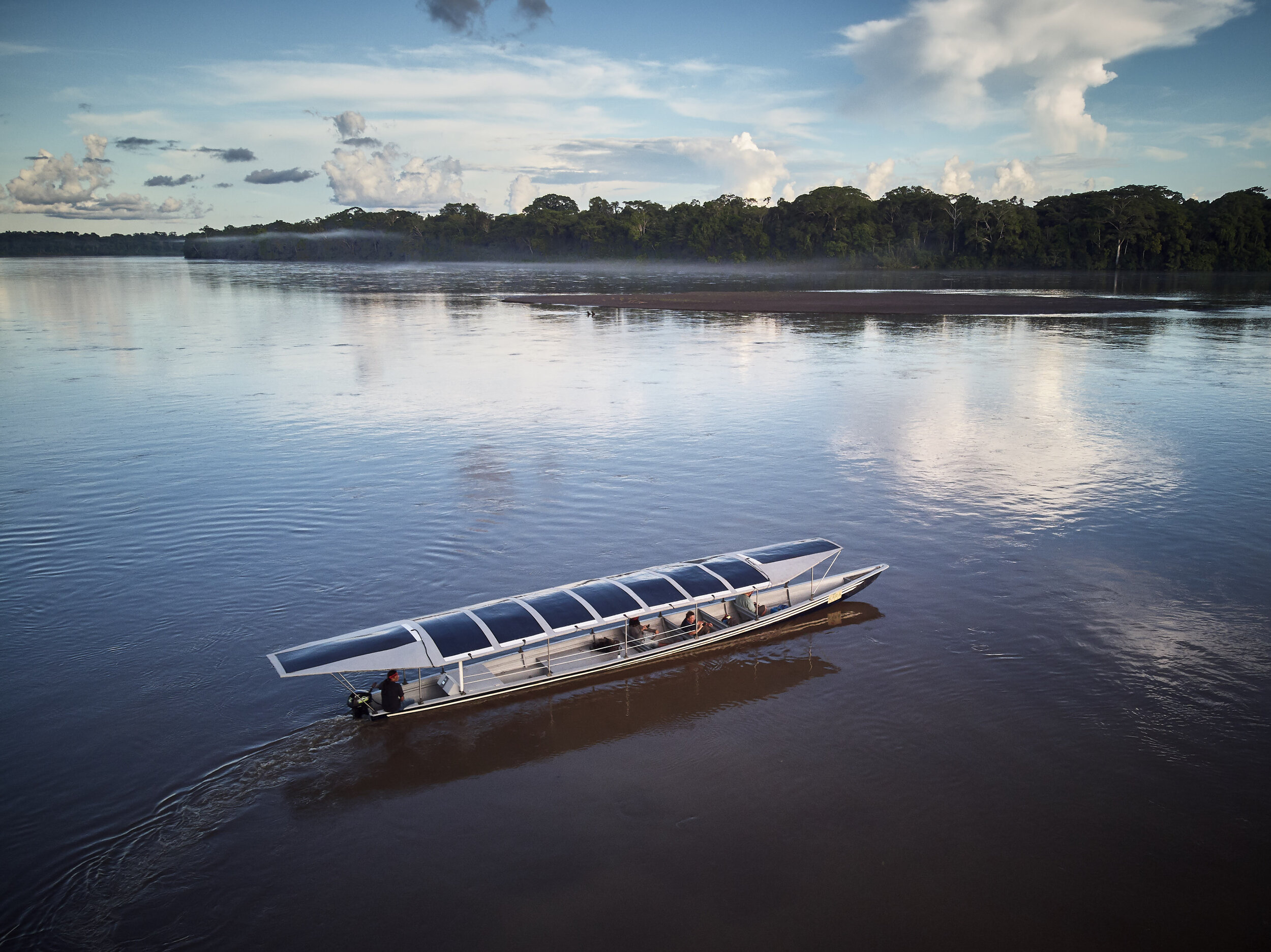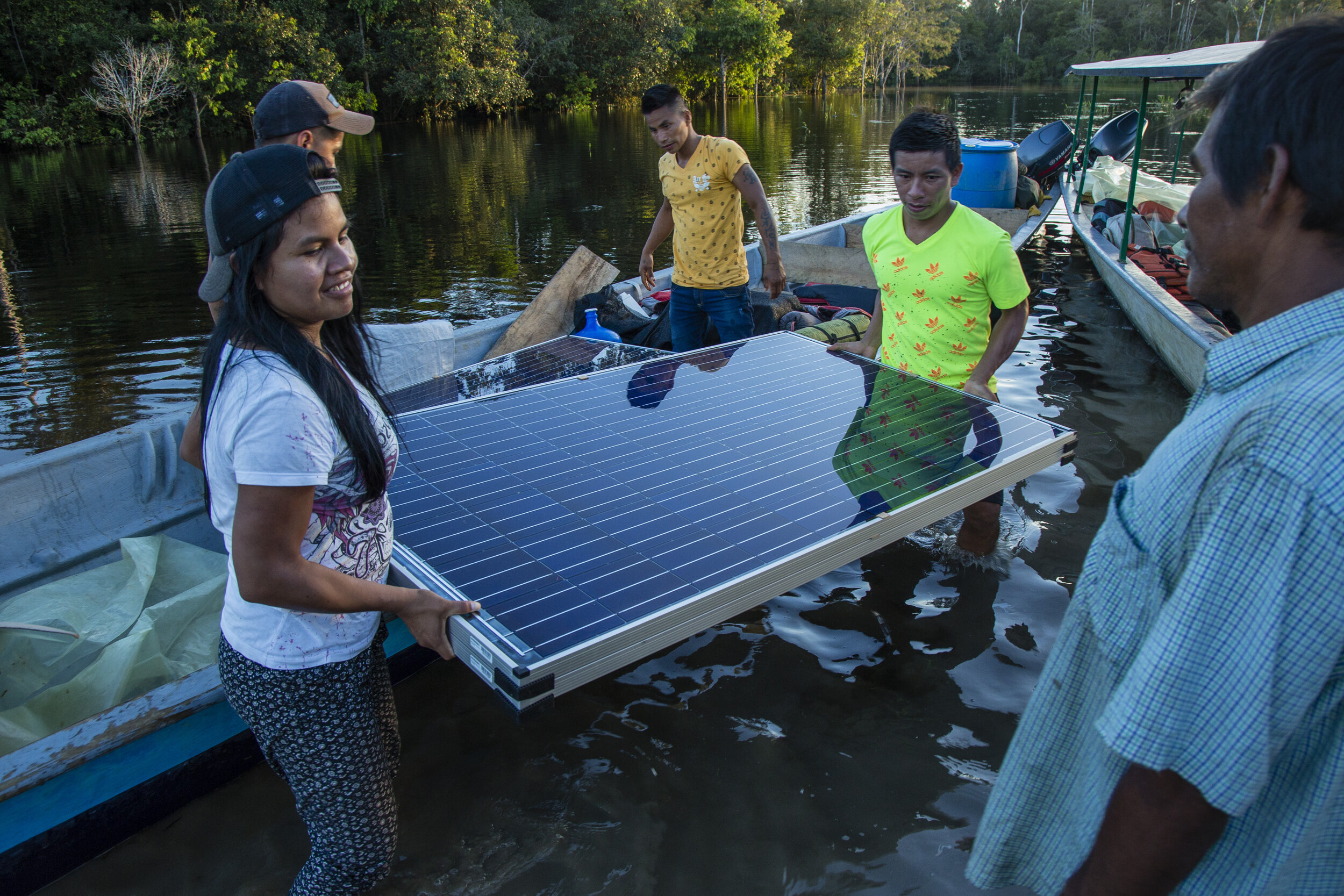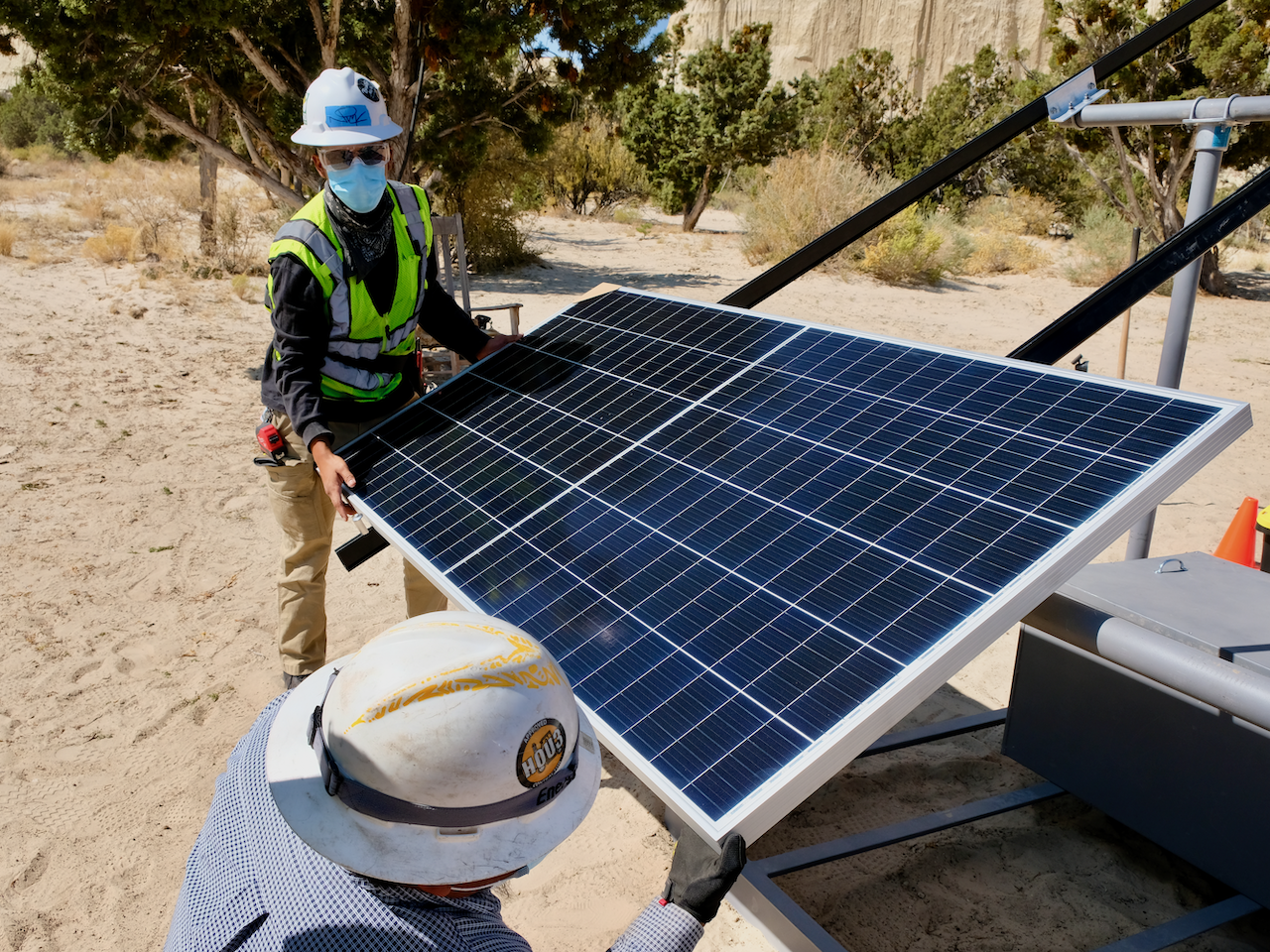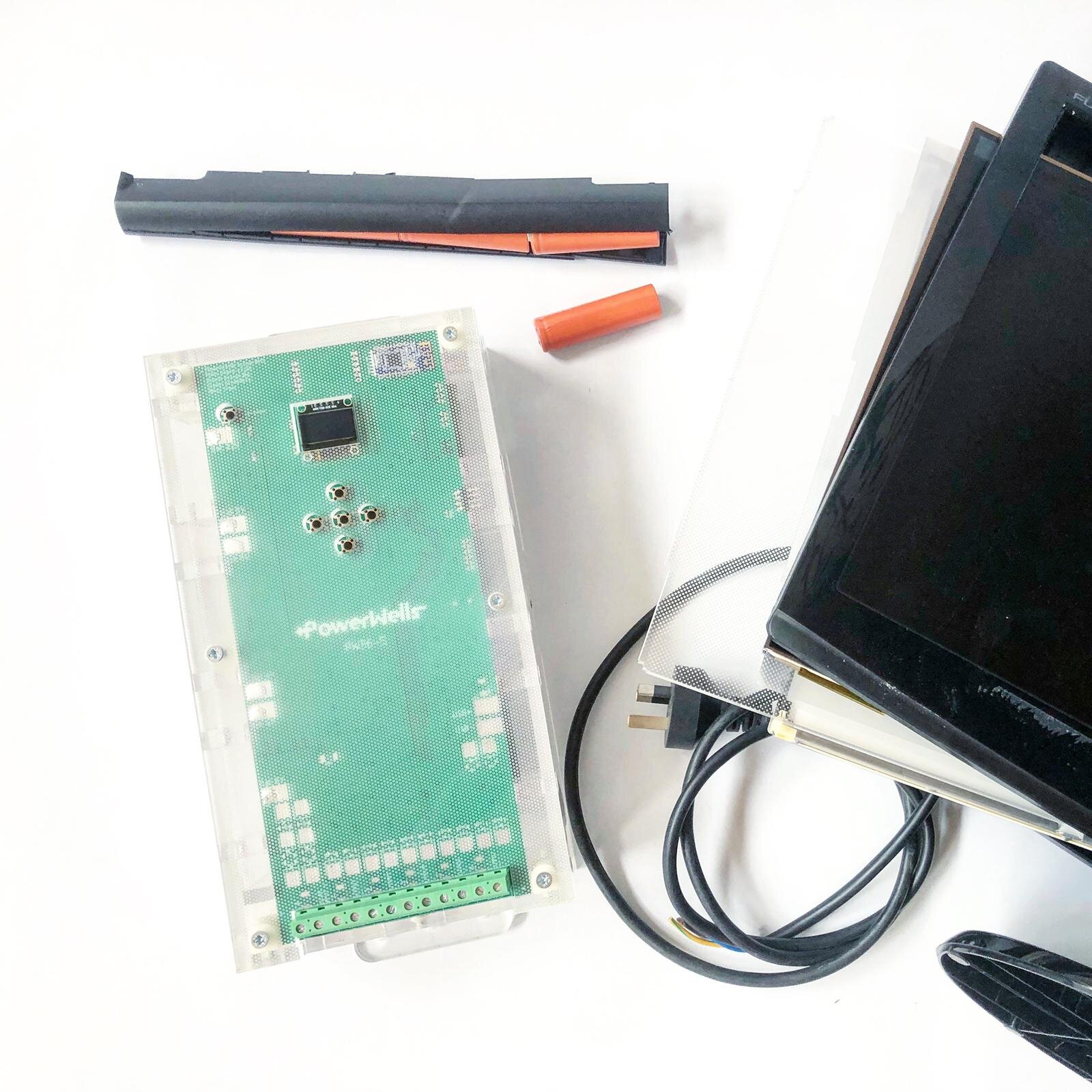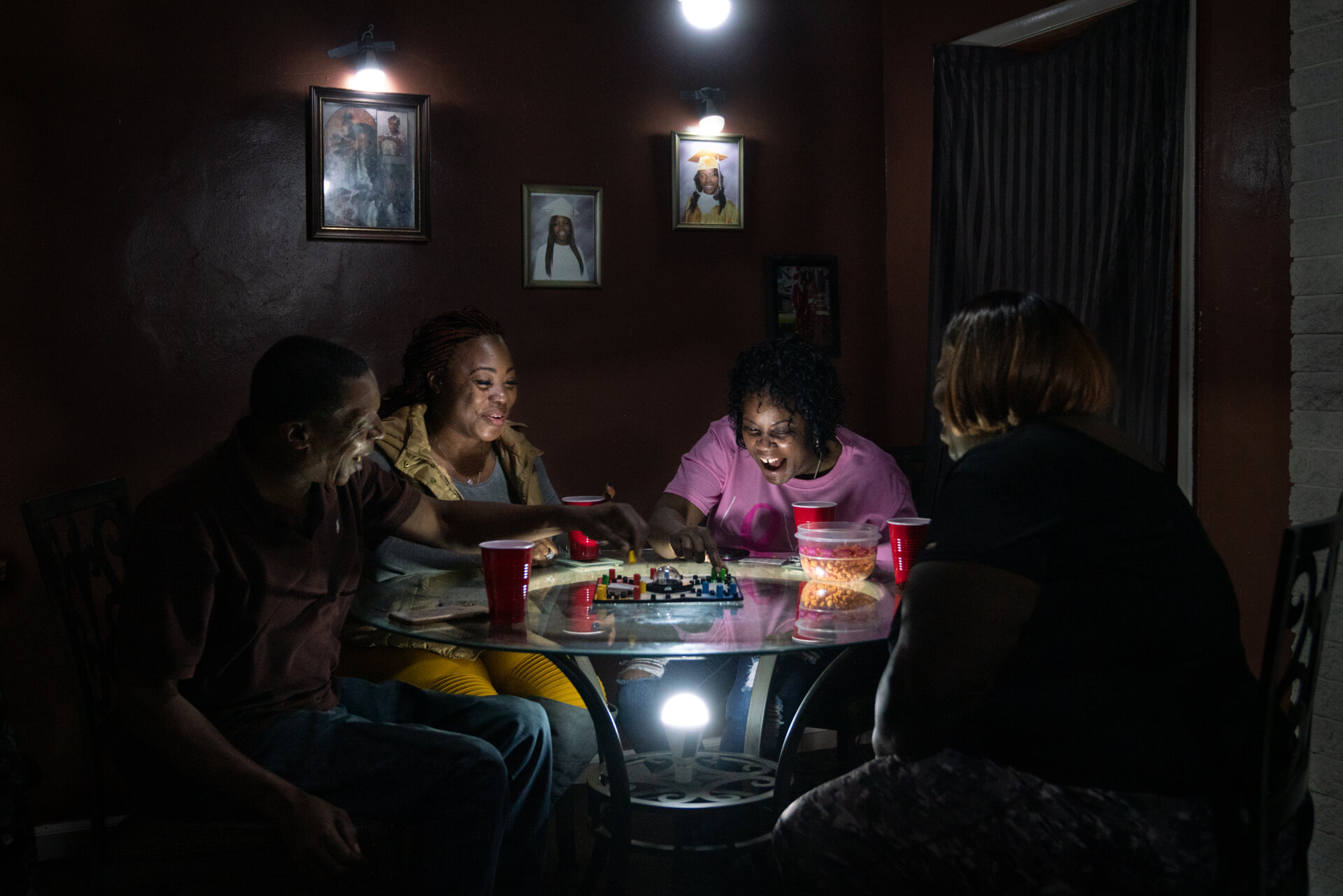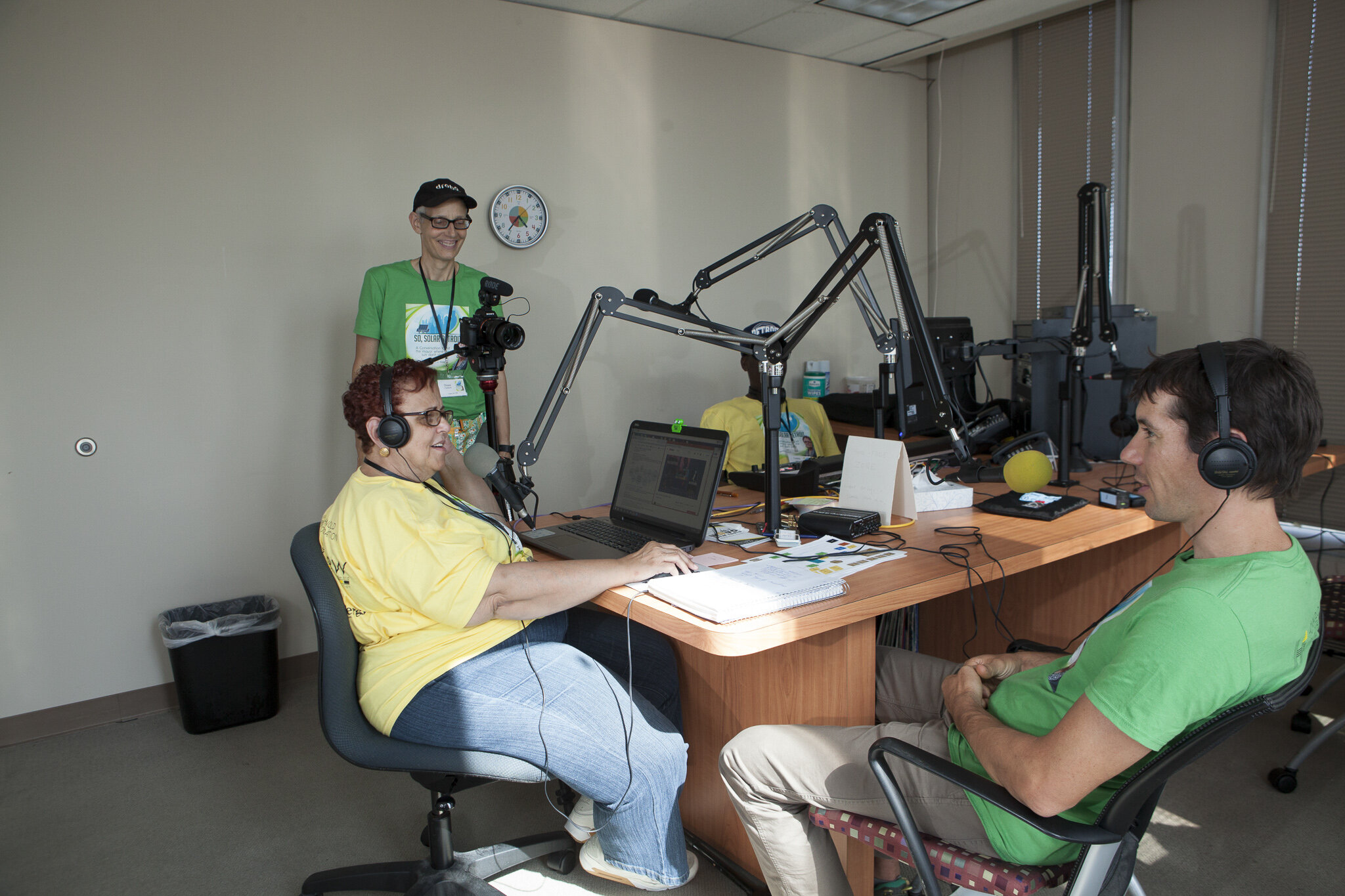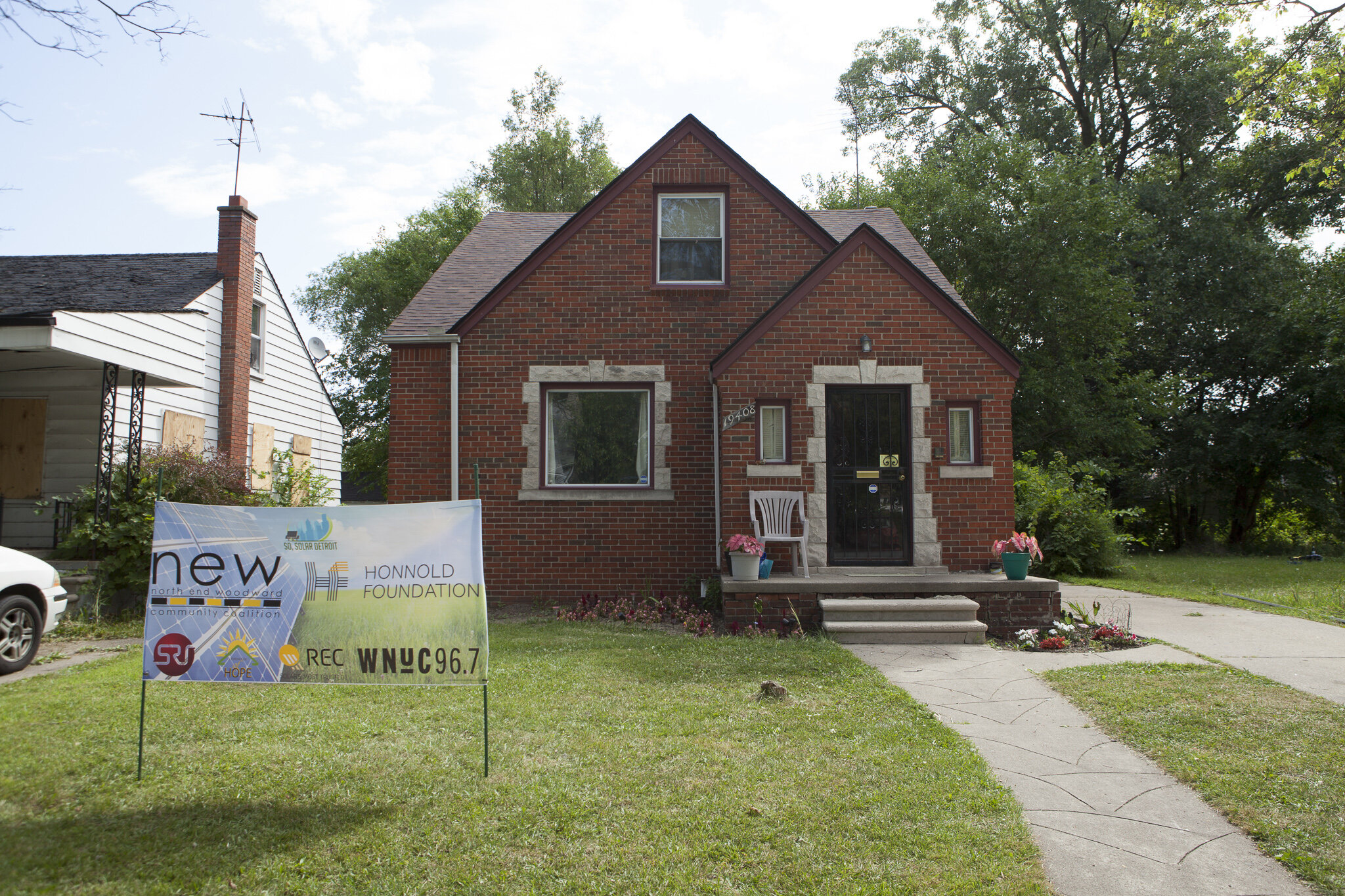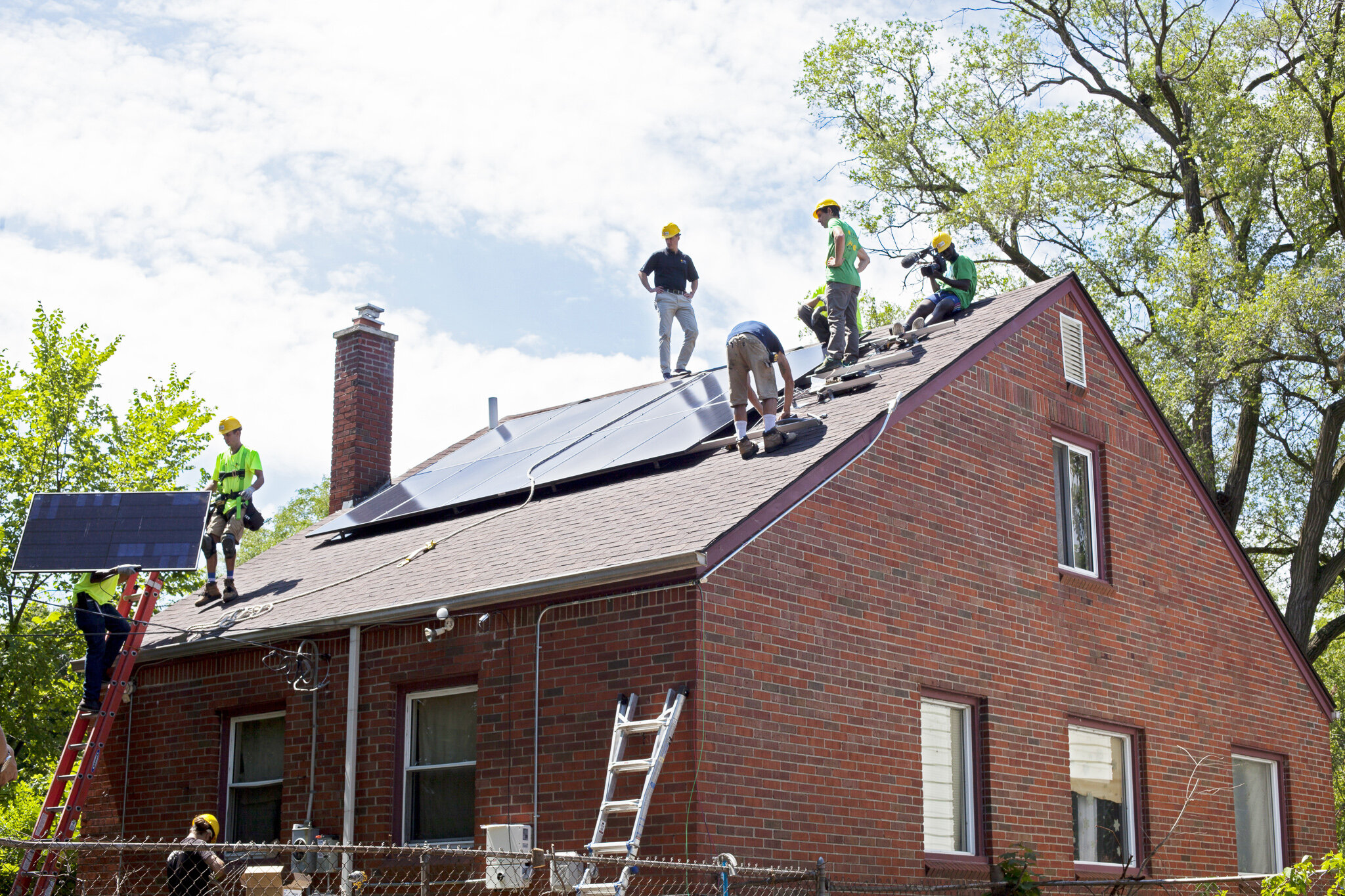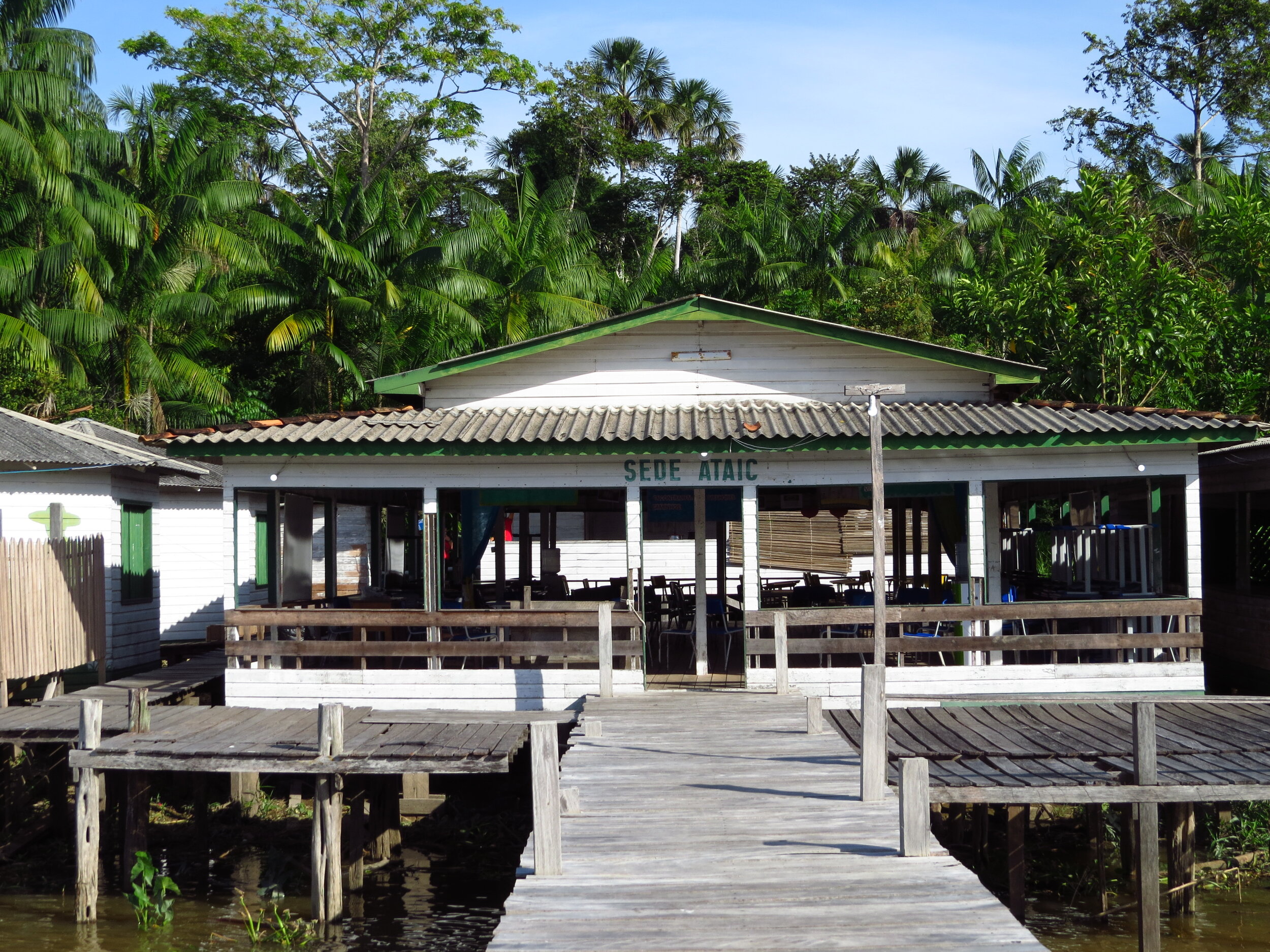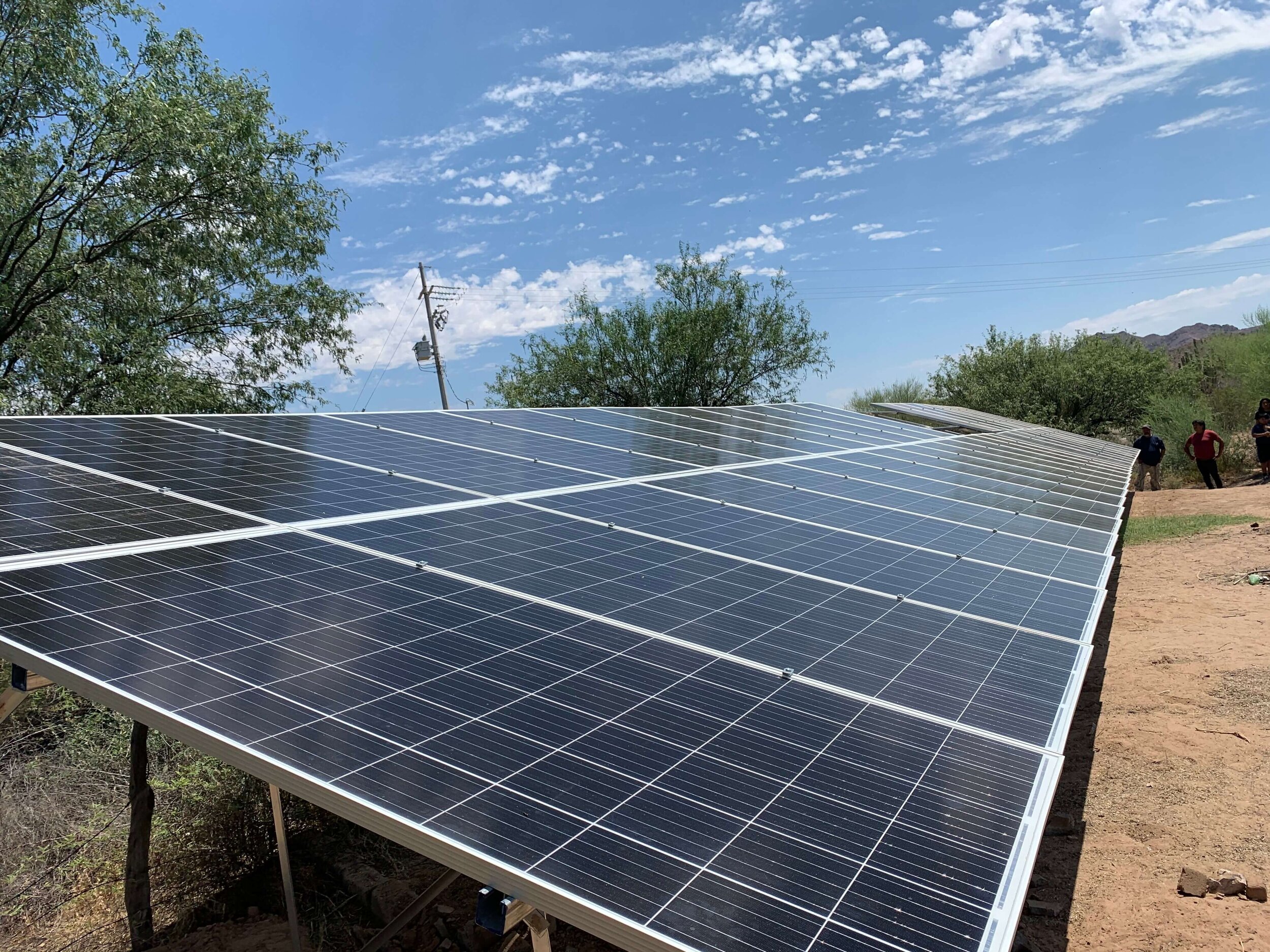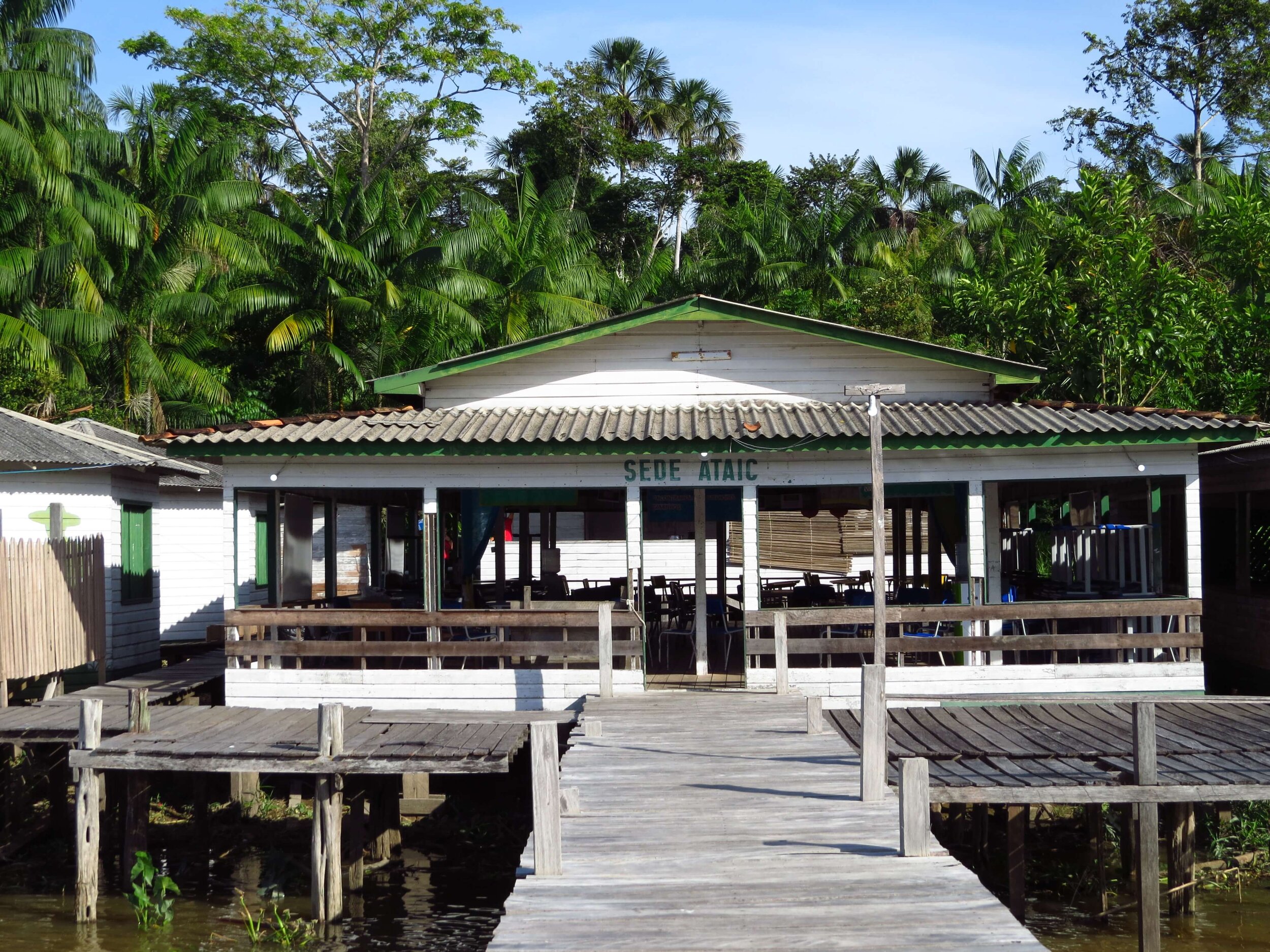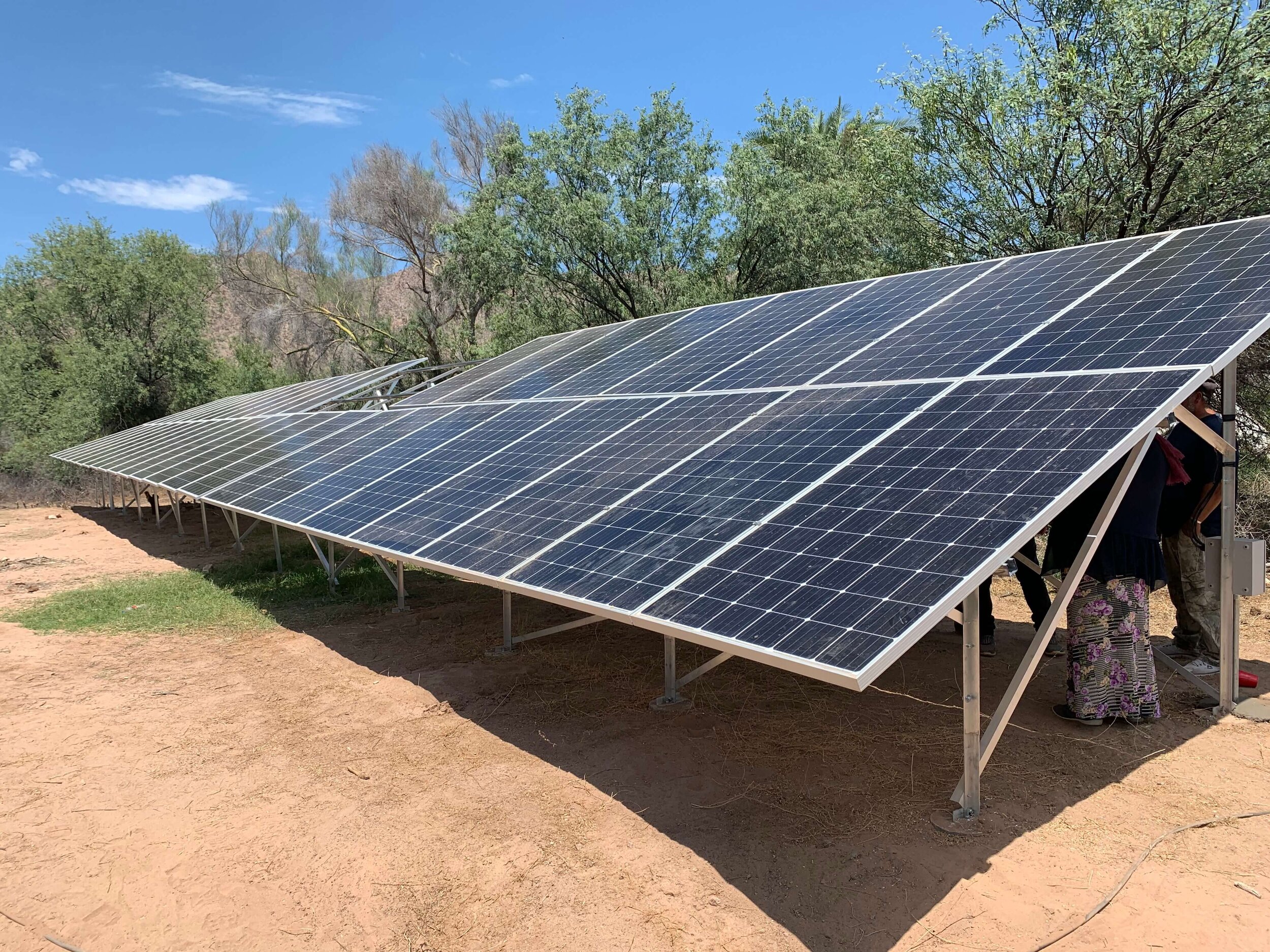ADJUNTAS, PUERTO RICO, October 19 2020 — Casa Pueblo, the Honnold Foundation, and the Community Solar Energy Association of Adjuntas (ACESA) are celebrating the installation of approximately 1,000 solar panels to power 18 businesses in 13 buildings around the town’s central plaza. This massive community project, known as Adjuntas Pueblo Solar, will have an installed capacity of 220 kW and will be operational by Christmas. In the second phase of the Pueblo Solar project, a 1 MW storage system utilizing second-life electric vehicle batteries will be designed, installed, and donated by Rivian, an electric vehicle manufacturer. Adjuntas will be the first location worldwide where this unique battery storage solution will be installed, and the repurposed batteries’ energy storage will allow for up to 10 days of complete off-grid functionality for all of the business served by the Adjuntas Pueblo Solar microgrid. The batteries are expected to arrive in Spring of 2021.
The Adjuntas Pueblo Solar microgrid will significantly reduce the energy costs for the community, and will provide consistent, reliable power in a place where the electricity grid often suffers from interruptions in service.
The president of ACESA, Gustavo Irizarry, affirms that “electricity bills often account for up to 30% of business costs [in our community]. As a business, it’s impossible to grow and difficult to even survive, and near impossible to compete with the huge foreign stores we see on the island. Now, we’ll have our own solution, one that can be a model for the entire Puerto Rican small business community. The business may be small, but together, we’re a giant.”
“We’re committed to supporting the Adjuntas Pueblo Solar initiative; it’s now been two years since we launched our collaboration with Casa Pueblo and Adjuntas,” said Dory Trimble, Executive Director of the Honnold Foundation, from their headquarters in Utah. “After the project launched, we were honored to participate in 2019’s Marcha del Sol. Today, the design is complete, and we’re delighted to have partnered with Rivian for the microgrid’s energy storage, and REC Group for a generous donation of 500 solar panels.”
This unique economic activation model will provide significant, sustained relief for small businesses’ energy expenses. While business owners will pay ACESA for the energy they consume, rates will be much lower than those of their current energy provider, PREPA. Initial funds will be reserved for the microgrid’s operation, maintenance, and repair. All remaining profits will be reinvested back into the community. Expanding on Casa Pueblo’s energy insurrection, ACESA plans to finance rooftop PV installations for low-income community members.
“These days, politicians make promises that they don’t keep. But in Adjuntas, the community is united in an energy insurrection, focused on social and economic development. Puerto Rico needs an economic breakthrough, and building energy independence is the way to go. We’re not postulating, we’re not asking for a vote or delegating our future to others-- instead, we’re dedicated to creating a change, with a deep social commitment and sense of planetary responsibility,” explains Arturo Massol-Deyá, the Associate Director of Casa Pueblo. “To those who sit in the seats of government, we demand respect for local, community-based development.”
After a long and complex project development process, Cynthia Arellano, the microgrid’s Project Manager from the Honnold Foundation, says “it’s been a true honor to be a part of this project and to work alongside Casa Pueblo and ACESA. This project was born as a vision from the community, and to see it come to fruition is revolutionary. I couldn’t be more excited.”
The installation of solar panels is being completed by Maximo Solar, a Puerto Rican company that plans to recruit people from the community to staff the project.
ABOUT CASA PUEBLO
Casa Pueblo is a community organization that is committed to appreciating and protecting natural, cultural and human resources. Over the past forty years, Casa Pueblo has grown into a hub for resilience, education, and environmental advocacy in the mountain town of Adjuntas, Puerto Rico. Housed in a building completely run by solar power since 1999, Casa Pueblo is an outspoken advocate for solar energy's ability to reduce environmental impact and improve human lives. To learn more, visit www.casapueblo.org.
ABOUT THE HONNOLD FOUNDATION
The Honnold Foundation (HF) promotes solar energy for a more equitable world. Founded in 2012 by professional rock climber Alex Honnold, we believe that energy should be clean, affordable, and accessible for everyone. HF provides funding, project management, and a storytelling spotlight to nonprofit partners worldwide, who are using solar energy to create opportunity, increase social equity, and build more resilient communities. To learn more, visit www.honnoldfoundation.org.
MEDIA CONTACTS
Dory Trimble, Executive Director
Honnold Foundation
press@honnoldfoundation.org
978-480-0745
Arturo Massol-Deyá, Associate Director
Casa Pueblo
arturomassol@gmail.com


















